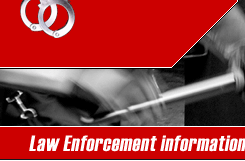Part #3 If you read parts one and two of this series then you are already familiar with some of the excuses that insurance companies will use to deny, delay, or diminish your car accident claim. But there are even more arguments that the insurance company will use against you. Minimizing the Severity of the Accident ? The property to damage to either or both vehicles involved was minimal. ? The plaintiff's vehicle was equipped with shock-absorbing bumpers, headrests, seat belts, which made impact injuries impossible or improbable. ? No other persons involved in accident had injuries. ? The defendant claims he was only going 5 mph or less.
? The damage repair estimate shows only $1,000 of damage to plaintiff's vehicle. ? The plaintiff's airbags never deployed so the forces had to be minor. ? The defendant's airbags never deployed so the forces had to be minor. Using Your Medical History Against You ? The plaintiff made errors in recalling his medical and/or employment history to the insurance company which can be' discovered" by defense during litigation. ? The plaintiff had prior complaints of pain to the same area of his body before the accident. ? The plaintiff received medical treatment to the same areas of his body before the accident.
? The plaintiff had seen a chiropractor or massage therapist before the accident. ? The plaintiff had a subsequent injury, which was the cause of continual problems instead of the accident in question. ? The plaintiff had no complaint of pain at the physical examination. ? The plaintiff received mental health counseling or therapy before the accident so perhaps his complaints following the accident are psycho-somatic. Minimizing Financial Impact Caused by Your Injuries ? The plaintiff's doctor did not recommend time off of work yet plaintiff took time off work.
? No doctor has stated that the plaintiff would lose work time in the future. ? The plaintiff had a poor attendance record at work prior to accident. ? The plaintiff would have been terminated, on strike, or laid-off even without accident. ? The plaintiff had no job at the time of the accident and can't substantiate that he was applying at various places. ? The plaintiff's earnings (W-2 and tax records) indicate a smaller earnings history than he has claimed. ? The plaintiff was paid in cash for prior employment and can't document his past earnings and/or has no tax returns.
? The plaintiff's employer has no official record (i.e., W-2) or other means to substantiate plaintiff's employment. Pulling Out all The Stops - Other Common Defenses ? The cost of treatment was excessive and the period during which plaintiff was treated was excessive in light of the "standard" or "customary" charge for such services. ? The injuries should have healed within 3-6 mos., so any treatment after that is excessive or unnecessary.
? The plaintiff went to work contrary to his doctor's advice and thereby aggravated his injury and/or caused prolonged period of disability and/or treatment. ? The plaintiff's doctor no longer in area or otherwise unavailable. ? The plaintiff allowed the "Statute of Limitations" period to expire, thereby forfeiting possibility of recovering anything for his claim.
? The plaintiff was partially at fault and should recover less under the rule of "Comparative Fault." ? Plaintiff has history of filing lawsuits for the purpose of collecting compensation. ? The plaintiff has a history of mental illness or emotional problems making him unreliable. There are dozens of other arguments that insurance companies commonly use to avoid paying a fair and reasonable settlement for your injuries.
It is the insurance adjustor's job to find as many of these defenses and arguments as possible for the limited purposed of defeating or minimizing your claim. He will question you very carefully. It all starts when the adjustor wants to "take your statement". Once you give a statement, and provide any information that might support one or more of these "arguments" it can be very, very difficult to later change the insurance company's mind - even if their argument is totally untrue! Information you give to the insurance company early on in the claim can cause irreparable damage later on. Therefore, be very careful when speaking to the insurance adjustor!.
Seattle personal injury attorney Christopher M. Davis is the managing partner of Davis Law Group. He brings over 15 years of practical yet innovative experience to personal injury cases. He practices law in Seattle, WA. You can learn more about Mr. Davis at http://www.InjuryTrialLawyer.com or at http://www.WashingtonAccidentBook.com.


